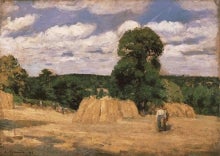Music, Nature, Place: A New Book Series

by Sabine Feisst and Denise Von Glahn
In fall 2012 Indiana University Press launched the book series Music, Nature, Place. The series is a forum for multidisciplinary scholarship that focuses upon the intersections of music, nature, and place. It includes monographs and edited volumes that employ a wide array of methodologies and addresses a broad range of topics, concerns, and traditions. It traverses boundaries between classical, popular, and folk musics and between musicology and other disciplines. Music, Nature, Place welcomes studies that treat urban and rural issues and conditions, and crossovers between science and the humanities. It explores different modes of thought that are enabled by music. Books in the series vary in scope, and the volumes will contain a bibliography, music examples, photographs, graphics, companion websites and links that enhance the treatment and reach of the work. Indiana University Press has recruited the two of us as editors, and we are supported by an Editorial Advisory Board, including Aaron Allen, Kevin Dawe, Tracey Laird, Jennifer Post, and Jeff Todd Titon who will use their wide-ranging expertise and experience to help in the evaluation of proposals.
Since the launch of the book series, the first volume has appeared: Denise Von Glahn’s Music and the Skillful Listener: American Women Compose the Natural World, which showcases three generations of American women composers, from Amy Beach to Emily Doolittle, exploring nature through music. Further volumes include an English adaptation and expansion of musicologist Árni Heimir Ingólfsson’s authoritative study of Icelandic composer Jón Leifs whose works are thoroughly inspired by Icelandic folksong, landscapes and other natural phenomena (Reykjavík 2009). Anthropologist Mark Pedelty is preparing a monograph on the role of activist musicians and musical movements in sustaining place. Focusing on musical activists based around the Salish Sea of the USA and Canada, Pedelty is examining environmentalist musicians on both sides of the border, including Dana Lyons, of Bellingham, Washington and the Raging Grannies of Victoria, British Columbia. His perspective from outside the confines of more traditional music scholarship testifies to the spirit of interdisciplinarity that is the essence of this series. We have received almost twenty proposals for monographs and edited volumes and projects in various stages of completion. They focus on music in Brazil, Canada, Cascadia, Iceland, Mongolia, and North America. They address climate change, environmentalism, ecofeminism, bioacoustics, and animal studies. They also include studies on experimental musical traditions, performance ecology and musicians including Sharon Abreu, Henry Brant, Chalifour, Claude Debussy, Michael Hurwicz, Jón Leifs, and Dana Lyons.
We are pleased to see such a vivid response to Music, Nature, Place. This is undoubtedly evidence of the rapidly growing interest in ecomusicology. As the field continues to develop through individual efforts, scholarly conferences, interdisciplinary symposia, workshops, round tables, documentary films, multimedia performances, community initiatives, and university courses, it is our goal that the series will respond and reflect the central position music plays in grounding us within our place, wherever that may be. The editors invite interested scholars to contact them with their ideas for projects.
This article originally appeared in Vol. 2 No. 2 of the Ecomusicology Newsletter (October 2013)





